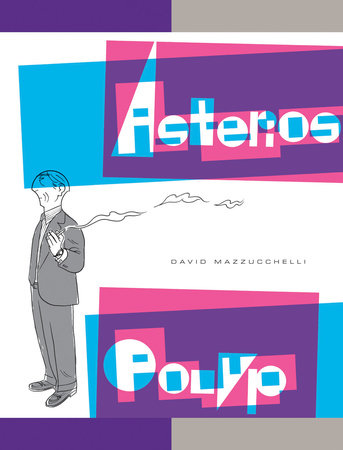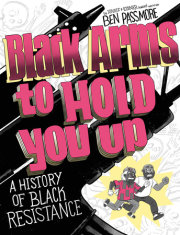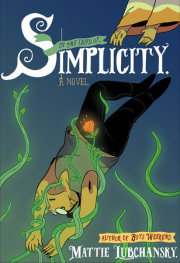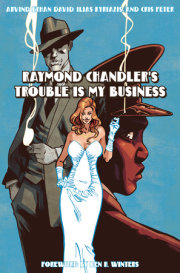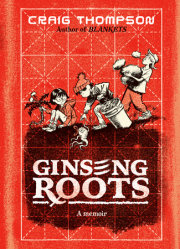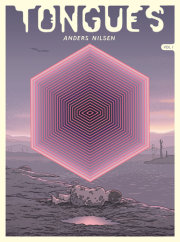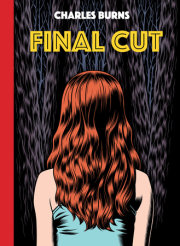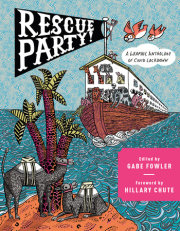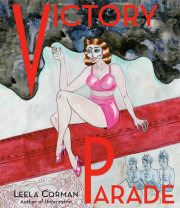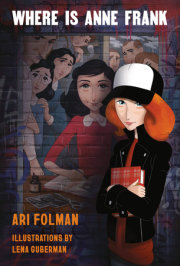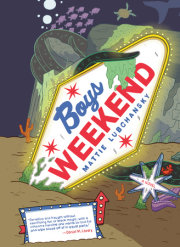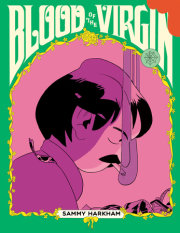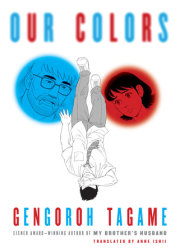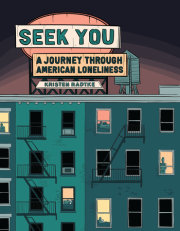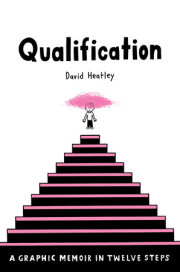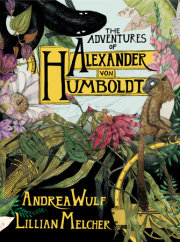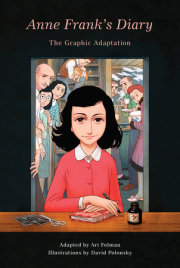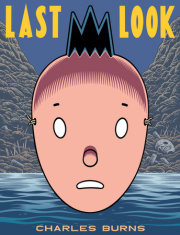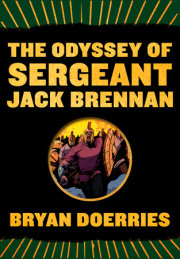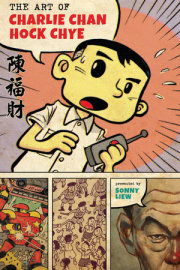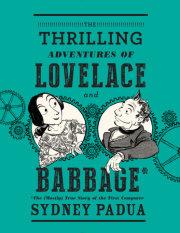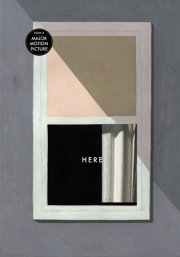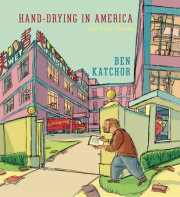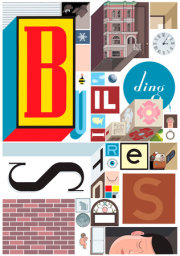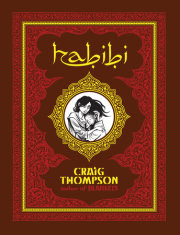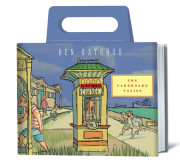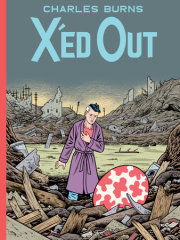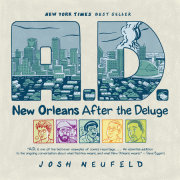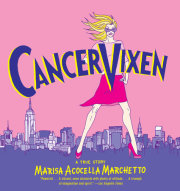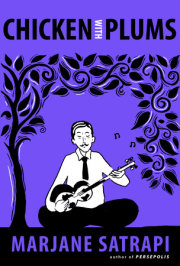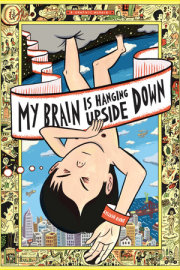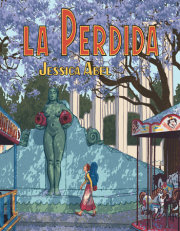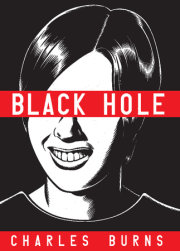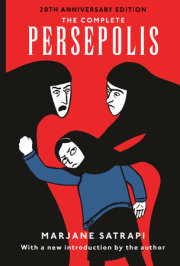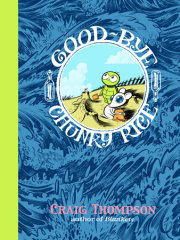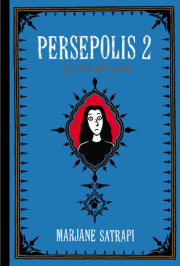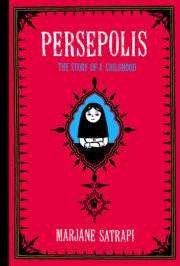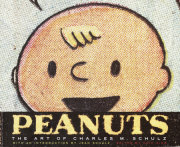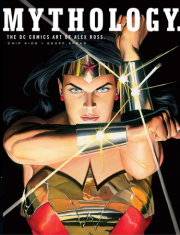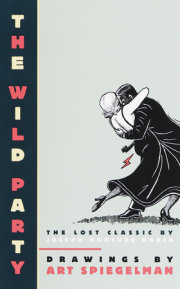The triumphant return of one of comics’ greatest talents, with an engrossing story of one man’s search for love, meaning, sanity, and perfect architectural proportions. An epic story long awaited, and well worth the wait.
Meet Asterios Polyp: middle-aged, meagerly successful architect and teacher, aesthete and womanizer, whose life is wholly upended when his New York City apartment goes up in flames. In a tenacious daze, he leaves the city and relocates to a small town in the American heartland. But what is this “escape” really about?
As the story unfolds, moving between the present and the past, we begin to understand this confounding yet fascinating character, and how he’s gotten to where he is. And isn’t. And we meet Hana: a sweet, smart, first-generation Japanese American artist with whom he had made a blissful life. But now she’s gone. Did Asterios do something to drive her away? What has happened to her? Is she even alive? All the questions will be answered, eventually.
In the meantime, we are enthralled by Mazzucchelli’s extraordinarily imagined world of brilliantly conceived eccentrics, sharply observed social mores, and deftly depicted asides on everything from design theory to the nature of human perception.
Asterios Polyp is David Mazzucchelli’s masterpiece: a great American graphic novel.
“This is a comic for artists, and it plays with space and color in ways that maybe only artists will understand, but it is a story for everyone, and Asterios Polyp is easily among the best graphic novels ever made. Go read it, and read it twice.”
—Providence City Paper
“This absorbing, idiosyncratic tale of love, ambition and opportunity marks the return of one of the modern masters of graphic storytelling.” —Miami Herald
“You'll be in awe of how perfect it is and certainly envious of it if you are a writer. What a beautiful, staggeringly brilliant piece of literature.” —Contra Costa Times
“The book is a satirical comedy of remarriage, a treatise on aesthetics and design and ontology, a late-life Künstlerroman, a Novel of Ideas with two capital letters, and just about the most schematic work of fiction this side of that other big book that constantly alludes to the Odyssey. . . . Asterios Polyp is a dazzling, expertly constructed entertainment, even as it’s maddening and even suffocating at times. It demands that its audience wrestle with it, argue with it, reread and re-examine it. Isn’t that the ultimate purpose of style?” —Douglas Wolk, New York Times Book Review
“Heady with philosophical and mythological references, Asterios Polyp vaults Mazzucchelli into the top rank of graphic artists. It’s a sweeping, provocative book that blends the richness of the traditional novel with the best modern art. Mazzucchelli’ s style—effortless and so versatile that you can’t imagine Asterios in any other medium—is sweeping in every sense.” —Boston Globe
“It’s a remarkable, bravura achievement—funny, harrowing and thought-provoking.” —San Francisco Chronicle
“Asterios Polyp reads like an intricately designed and heartfelt work of metafiction, juggling design theory, philosophy and sly nods to other cartoonists to create a dryly funny masterpiece.” —Time Out New York
“Haunting and beautiful.” —Los Angeles Times
“I was completely blown away by Asterios Polyp, David Mazzucchelli’s latest comic book, a pull-out-all-the-stops package that’s funny, poignant and deep, with panels of thoughtfully shaded images that form a visual novel, a paper movie, and finally, an existential meditation on things that matter to us: religion, art, science, love and memory.” —Pop Culture Nerd
“One of the smartest and most rewarding graphic novels of the year to date.” —Pop Matters
“It’s a remarkable, bravura achievement—funny, harrowing and thought-provoking.” —San Francisco Chronicle
“One of the greatest comics of all time.” —Comic Book Resources
“Mazzucchelli’s masterwork is by no means an easy read. . . but it is a transcendent one.” —Austin Chronicle
“A sprawling work about the life and loves of a middle-aged, philandering architect who loses everything in a fire. The coming release has been compared to the idiosyncratic work of Thomas Pynchon.” —Wall Street Journal
“Even by the standards of the graphic novel, this cosmic epic pushes the creative envelope.With previous credits including superheroes for Marvel Comics and the transformation of Paul Auster’s City of Glass into a graphic novel (2004), Mazzucchelli returns with a title that suggests a mid-period Pink Floyd song and an illustrated narrative that is every bit as mind-blowing. In this graphic novel of fate, chance and shooting stars, Polyp insists that ‘I am the hero of my own story,’ yet the art provides plenty of evidence to the contrary. A visual and even philosophical stunner.” —Kirkus Reviews
“The simplicity of that facile summary, along with the deceptively cartoony drawing style Mazzucchelli has adopted for the work, makes it easy to miss its genuine accomplishment. The sparseness of his illustration gives necessary clarity to his complex storytelling, which employs intricate and imaginative panel arrangements and a constantly shifting chronology.meticulously constructed.It's a testimony to Mazzucchelli’s skills that by the end of Polyp's odyssey, the arrogant academic has been rendered a tragic and sympathetic figure deserving of the tale's (possibly) happy ending." —Gordon Flagg, Booklist
“For decades, Mazzucchelli has been a master without a masterpiece. Now he has one. His long-awaited graphic novel is a huge, knotty marvel, the comics equivalent of a Pynchon or Gaddis novel, and radically different from anything he’s done before. There are fascinating digressions on aesthetic philosophy, as well as some very broad satire, but the core of the book is Mazzucchelli’s odyssey of style-every major character in the book is associated with a specific drawing style and visual motifs, and the design, color scheme and formal techniques of every page change to reinforce whatever's happening in the story. Although Mazzucchelli stacks the deck-few characters besides Polyp and his inamorata, the impossibly good-hearted sculptor Hana, are more than caricatures-the book’s bravado and mastery make it riveting even when it's frustrating, and provide a powerful example of how comics use visual information to illustrate complex, interconnected topics. Easily one of the best books of 2009 already.” —Publishers Weekly
“The more you study Polyp, the more there is to discover. This is a book that stands with works by Updike, Roth, and other giants of American literature. It is undoubtedly one of the best novels of the year.” —The Stranger
“Asterios Polyp is a perfect marriage of words and pictures. Every drawing, color choice and panel layout is pregnant with meaning.” —Columbus Dispatch
“What Mazzucchelli accomplishes, though, with remarkable clarity and a jazzy pop-culture eye, and which the written word has a tougher time with, is portraying silence, moments between something said and something to come—even thought itself. That sticks; those last pages are as tender and heartbreaking a portrait of lost time as I can recall, and no less powerful for being nearly wordless” —Chicago Tribune
“Critics have decried the modern graphic novel’s focus on form at the expense of content. With Asterios Polyp, Mazzucchelli has put paid to that charge: It's funny, it’s warm and it's beautiful. Go read it.” —Newsday.com
“Each panel is a moment in the story that when connected to other panels becomes part of a scene or sequence that is rich in storytelling and fertile with ideas, inquiry, and themes.” —ComicBookBin, A+ review
“Mazzucchelli experiments with numerous art styles and pushes the envelope with challenging digressions into philosophy, religion and mortality throughout Polyp’s tale. The engrossing effort culminates with a bombshell that will leave readers reeling.” —Toronto Star
“In Asterios Polyp—the best of the summer’s new releases—Mazzucchelli employs spotlights, coloring schemes, knitting, Aristophanes, an identical twin who died at birth and the wide array of secretions from a woman's body to lead us into the self-centered world of the title character even as the center implodes. . . . Asterios Polyp is a primer for both the fervent possibilities and the rich rewards of the graphic novel.” —Portland Oregonian
“Now, after a decade-and-a-half, he has re-re-emerged with Asterios Polyp, an epic, emotionally rich, symbol-laden work that promises to redefine the graphic novel. Published by Pantheon Books (home to master-class cartoonists such as Art Spiegelman, Chris Ware and Dan Clowes), Asterios Polyp is Mazzucchelli’ s first graphic novel. It is also happens to be his masterpiece, the culmination of 25 years of promise. . . . Mazzucchelli has made a beautiful, elaborate construction that coyly juggles style and content in a way few cartoonists are capable of.” —Globe and Mail (Canada)
“The beauty of Asterios Polyp is that its core tenet, the need to pay attention to life as it happens, is so well reflected in the book itself—in its lush paper tone and rough-hewn, elegant design—and in the way all the formal devices serve the story. As such, it rewards attention and even devotion.” —Bookforum
“Mazzucchelli manages to combine breathless formal experimentation and read feeling into a story where every line, color choice, and panel arrangement builds toward a cohesive whole, lending an air of epic proportions to what would otherwise be a simple tale.” —Library Journal
“Mazzucchelli is a gifted artist/writer, and as a reader moves through the lush and varied pages of Asterios Polyp, stylistic surprises abound amid what feels like a master lesson in the form and function of design. He delivers a truly transformative tale of love and trust.” —World Literature Today
“Finally, after a decade of silence, Mazzucchelli has returned with his own graphic novel, Asterios Polyp: sprawling, trippy, moving, and a hell of a lot of fun.Almost without realizing it, we slowly begin rooting for Asterios, and hard. A serial overthinker, he lives much of his life in his own head. So Mazzucchelli takes us there, repeatedly, with perfect clarity—it’s as if John Updike had discovered a bag of art supplies and LSD. Elegant, deceptively simple line work and nearly subliminal color symbolism make everything go down like candy. The narrative comes back to earth for a profoundly satisfying climax, but you'll want to keep turning pages—all the way back to the beginning, for another read.” —Entertainment Weekly

